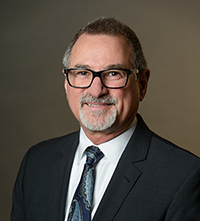By Ben Marcantonio
The Fourth of July is a time to celebrate the United States’ independence, but it is also an opportunity to reflect on our nation’s founding principles, and how we can live by those ideals today and into the future. The Declaration of Independence tells us: “We hold these truths to be self-evident, that all men are created equal, that they are endowed by their Creator with certain unalienable Rights, that among these are Life, Liberty and the pursuit of Happiness.” The first sentence of the U.S. Constitution sets out the purpose of that founding document and our purpose as a country: “We the People of the United States, in Order to form a more perfect Union, establish Justice, insure domestic Tranquility, provide for the common defence, promote the general Welfare, and secure the Blessings of Liberty to ourselves and our Posterity, do ordain and establish this Constitution for the United States of America.”
As I think about our work in
hospice and palliative care, and the broader healthcare community, I see our
purpose reflected in these founding documents. Providers certainly are
foundational to quality of life and the pursuit of happiness. By supporting patients,
families, and the community, we are helping form a more perfect union. Delivering
equitable access to healthcare for all is an important part of justice.
Last week, the news was dominated by headlines about recent Supreme Court decisions on affirmative action and LGBTQ+ rights. Regardless of whether you think the court made the right or wrong decisions in these cases, we can all recognize that these rulings will affect the everyday lives of people, particularly Black and Hispanic individuals, and members of the LGBTQ+ community. We also know that these decisions have an influence that is broader and deeper than meets the eye.
These court decisions have multi-directional impact because they are connected to healthcare. Every day, in communities across America, there are people who have inequitable access to healthcare. It’s clear that access to care is impacted by factors such as wealth, where people live, and what insurance they have or are lacking. It may be less obvious on the surface, but it is no less true that race, ethnicity, language, gender, sexual orientation, and religion can impact access to and/or delivery of care as well. If you can’t get care in a language you understand, is that full access to care? If treatment of pain is likely to vary based on a patient’s race, is our health system equitable? If our Hispanic and Latino neighbors know less about hospice than their Black or White counterparts, as shown in a recent report, can we say we are delivering on the promise of equal access? These issues are often compounded by lack of trust and dedicating the time it takes to build rapport and meaningful relationships. The Hospice through the DEI Lens report shows that nearly 1/3 of LGBTQ+ respondents either doubt or are unsure that hospice care providers would respect their sexuality. With that level of doubt, LGBTQ+ people are less likely to access care. Decades of mistreatment of African American/Black and Native American communities by the medical establishment has led to mistrust of doctors and health facilities, creating significant barriers to access for many Americans today.
As a longtime hospice provider, and now a champion for hospices across the country, I am proud of the many ways in which our members have been at the forefront of making care accessible to more people. One of the most prominent examples is the way that hospices stepped up during the AIDS crisis to care for patients who were largely ignored by the rest of the health system. Today, we have incredible and inspiring examples of hospices reaching people where they are. There are hospices in prisons, with care provided by prisoners. There are hospices delivering care to people who are unhoused. There are hospices established recently with the express goal of reaching underserved communities, in both rural and urban settings, as well as hospices focused on connecting with African American and Black communities. Let’s take that further. Our charge to support equitable and accessible care for ALL at the end of life, includes caring for those who are on the unpredictable and often precarious trajectory of serious illness and co-morbid conditions.
This imperative and unwavering commitment to equity and justice is foundational to our country and to the hospice movement and should be our guide to creating a better future for all. But equity does not exist in a vacuum. It is found through embracing diversity of thought, words, and actions as well as a curiosity for learning with an open mind. As our nation continues to wrestle with inequities that prevent certain groups of people from pursing life, liberty, and happiness, we can strive for an even more perfect union to become a part of the solution. I believe the hospice and palliative care community has an important role to play. It’s our job to meet people where they are, to provide the care they need at the right time and in the right manner. Our job as healthcare providers is to recognize and celebrate the differences that make each person unique, and to deliver care that meets their individual needs. I’m proud to be part of this community; I’m proud of NHPCO’s work to support hospices in advancing equity and providing inclusive care; I’m proud that the hospice movement is helping advance freedom and justice. As we look to the future of our country and of the hospice movement, we must remain committed to freedom, justice, and equality for all.
Note: NHPCO offers a wealth of hospice
and palliative care access and inclusion resources at www.nhpco.org/diversity

No comments:
Post a Comment